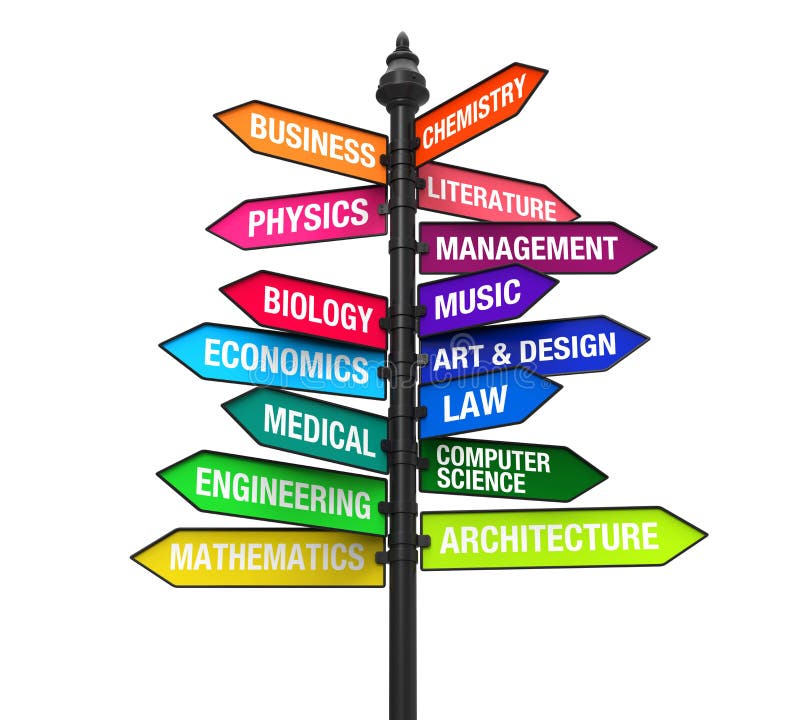College Majors: Which Majors are Actually Worth It?
Hello all, this may not be a good time to post this considering the pandemic going on, but I meant to put this up a while ago, and never have. This will be the start of the work section I promised to make here. I'll make a few articles on these topics and link them on a tab on the blog. For now this article will be that tab link as it is the first and only. Also, I posted a similar article on the BRI channel when it still existed.

A central question of growing up is what will you do for a career? What will be the right path to take? Obviously this boils down to a certain extent on you personally and your interests but more often than not it also has to do even more with demand, and the supply of people with the qualifications, along with the pay range you can expect. Higher education is often seen as a path to a better career in the future, but all roads you take there are not equal and in some cases may not be worth it. Some college majors tend to pay off, others not so much. These days, with the level of over-qualification in some countries such as Canada, the state of the economy, the lack of practical application of many degrees, and the high costs of studies which can severely put you in debt, before starting your education instead of filling your future full of dreams you really should step back and take a look at cold hard reality.
A lot of young people that enter university or are about to tend to be idealistic, naive, and have somewhat fanciful ideas a range of topics, and in this case about their future career prospects in fields that seem to interest them. Furthermore people who have decided on a path often use confirmation bias that skews their views sometimes to the point of no return. Obviously people who have succeeded in an industry are more likely to speak positively of it, rather than those that failed to be successful in it. For an objective analysis we need to look at the statistics, what are the majors and the careers possible from them that pay the highest, are in great demand, and give people without necessarily the highest level of skill a bright path in the future?
Now before we begin with our analysis, let me make something clear: We are talking about FIRST bachelor degrees. Master's degrees, and second professional degrees like dentistry and medicine do NOT count here. We're talking about programs that you can just apply for and get accepted to straight from high school and finish in 4 years, without requiring any kind of post-graduate education.
According to a CNBC article:
https://www.cnbc.com/2019/08/20/the-10-highest-paying-college-majors-of-2019.html
In 2019, according to payscale.com the highest earning majors were:
(I'm only looking here are the median salaries for alumni with 0-5 years of experience, with more experience the median salaries are significantly higher, and that's how they were grouped in the original article hence they appear out of order here.)
10: Aeronautics and Astronautics:
Median salary for alumni with 0-5 years of experience: $73,100
9: Pharmacy
Median salary for alumni with 0-5 years of experience: $79,600
8. Business Analysis
Median salary for alumni with 0-5 years of experience: $57,200
7. Electrical Power Engineering
Median salary for alumni with 0-5 years of experience: $72,400
6. Actuarial Mathematics
Median salary for alumni with 0-5 years of experience: $63,300
5. Political Economy
Median salary for alumni with 0-5 years of experience: $57,600
4. Operations Research
Median salary for alumni with 0-5 years of experience: $77,900
3. Applied Economics and Management
Median salary for alumni with 0-5 years of experience: $58,900
2. Electrical Engineering and Computer Science
Median salary for alumni with 0-5 years of experience: $88,000
1. Petroleum Engineering
Median salary for alumni with 0-5 years of experience: $94,500
Note that with experience between 5-10 years the median Petroleum Engineering salary is: $176,900 (USD)
According to this article in US News:
https://www.usnews.com/education/best-colleges/slideshows/10-college-majors-with-the-highest-starting-salaries
10 College Majors With the Best Starting Salaries
They are:
10. Mechanical Engineering
Median starting salary: $67,385
9. Industrial Engineering
Median starting salary: $ 67,547
8. Materials Engineering
Median starting salary: $69,587
7. Aerospace & Aeronautical Engineering
Median starting salary: $70,780
6. Systems Engineering
Median starting salary: $71,510
5. Electrical Engineering
Median starting salary: $71,659
4. Nuclear Engineering
Median starting salary: $73,175
3. Chemical Engineering
Median starting salary: $73, 627
2. Computer Engineering
Median starting salary: $74,026
1. Petroleum Engineering
Median starting salary: $96,544
Do you see a pattern? Engineering!
Now let's talk about Employability in terms of market:
The Problem:
Essentially a lot of the university degrees that are being given out aren't doing what the students want them to do, which is get them jobs. The university system is old, and is really not fitted to the current demands of how the world has changed. In the past only a handful of people were able to attend university due to both the high expenses, the limited amount of spaces, as well as the difficult requirements to be admitted. Also, many traditional topics such as history, philosophy, literature were pursued by a relatively small number of students and they were able to get at least somewhat relevant careers without necessarily obtaining a Ph.d. Nowadays universities have spread up all over the places with millions and millions of students worldwide, not all of them will be able to become academics, this would just be impossible. Also, with the advent of greater science and technology a lot of these topics are being studied by scientific means to make predictions, and others are really just becoming outdated due to new forms of media.
The positions in the arts oftentimes only take those of high talent and dedication. What about the sciences? Although generally those with science degrees do have an easier time getting employment, and higher average salaries, it is in my opinion that they don't necessarily offer that much of an advantage. A bachelor's degree in the pure sciences typically won't get you far. To really get a relevant job in the pure sciences like physics, chemistry, and biology, you'd need to have a masters' or higher, and the jobs don't seem to be that plentiful.
Most of the jobs that I see want specific technical skills and knowledge not the general kind of theoretical knowledge you may obtain in one of these types of programs.
My Advice:
Fortunately there are some available paths that can be taken that can give one a higher chance at a brighter future: more technical degrees. From this article the obvious one would be engineering, these degrees are very much about hands on and application. Solving real problems that people need to get stuff like building, manufacturing, etc. done. The demand is high, as is the pay, and unlike in some of the fine arts, for example, you don't need extraordinary skill to really succeed.
Another rather lucrative career, while typically lower than engineering, though depending on skill level is computer science, and the demand for this appears to be even higher than engineering, and is essentially found everywhere. With the amount of computer based technologies being used around the globe for every conceivable purpose, programming, or giving instructions to the computers, and related tasks are very bountiful, and will be in the near, and probably far future.
Now admittedly engineering programs, as well as computer science, and programming programs are quite intense. There are other majors that one can pursue even in the more pure sciences, but those with a very practical focus like biochemistry, or perhaps biotechnology, immunology, etc.
Alternatively to these university approaches (aside from programming which you can get into without university), there is the route of skilled trades. These typically require apprenticeships, but for a portion of these I believe you do get paid, and the demand for skilled trades like being a plumber, and electrician, a bricklayer, etc., is rather high. Plumbers in some countries can make something like $65,000 USD a year, so if you're practically oriented this is something worth looking into.
Some other thoughts:
Whatever college major one chooses however, they really should consider the realistic employment prospects ahead of time. Look in the job ads, and decide the feasibility of acquiring a job of your dreams, and make a realistic plan of getting there.
As an aside if your passion lies with the pure sciences and not engineering, consider this: if you study engineering for a bachelor's degree, and things go along very smoothly, and you have the funds, and interests, and position in life to pursue the sciences it is still possible. You could go from something like mechanical or electrical engineering to a master's of physics degree, or a chemical engineering to a master's of chemistry degree (although the two are NOT the same), or even a master's o physics degree, similarly from a bioengineering, or biomedical engineering to a master's of a biological science degree, it is possible. And thus, if that doesn't turn out to be a realistic option you would still have a good shot at getting a lucrative career all with your bachelor's.
Finally, the beautiful thing about programming although many of us find it boring is the fact that you can get into so many different industries with it, and also it is possible to teach this to yourself using free resources, with no university degree required at all!

Comments
Post a Comment